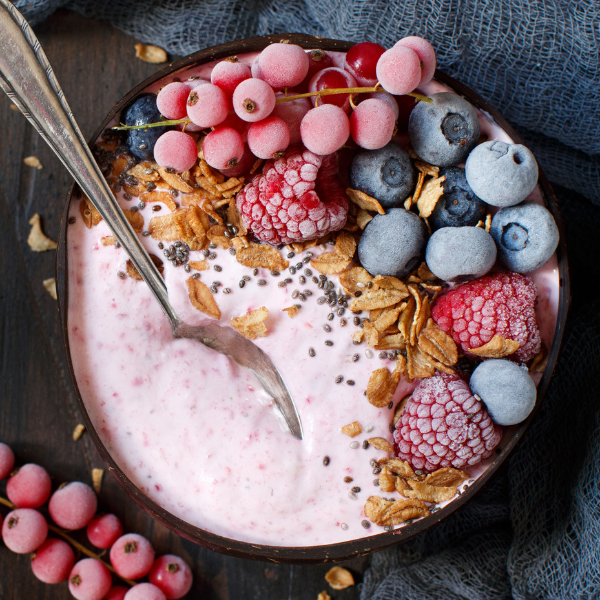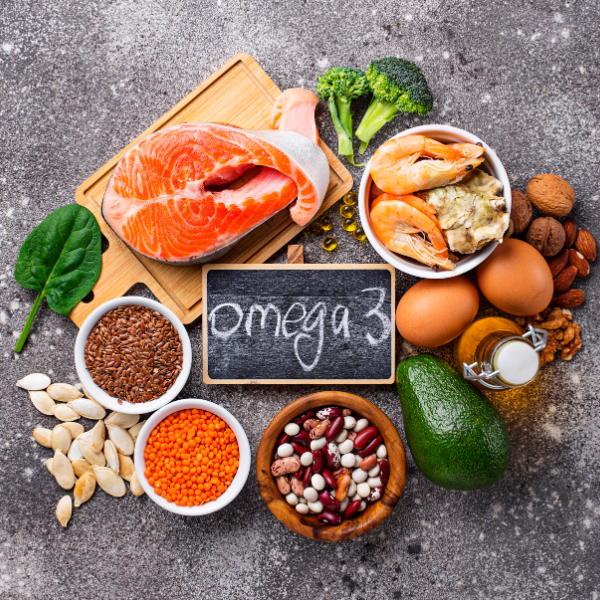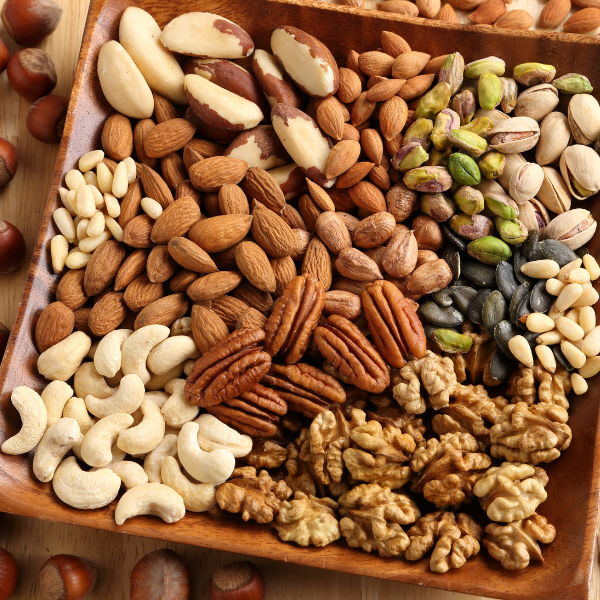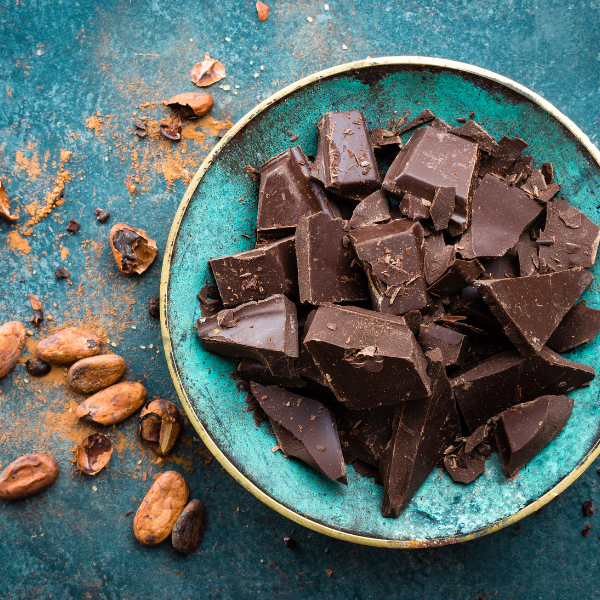Food for Focus: The Ultimate Guide to Brain-Boosting Nutrition
Ever feel like you’re struggling to focus no matter how much coffee you drink or how well you plan your day? You’re not alone—but the culprit might be closer than you think. It’s not just about what you’re eating—it’s about the quality of your food.
Many conventional foods are treated with pesticides and chemicals that can have serious impacts on your brain health. Some of these substances are classified as neurotoxins, meaning they can interfere with your brain’s ability to function optimally. Over time, exposure to these chemicals has been linked to memory issues, brain fog, and even cognitive decline.
The good news? You can protect your brain and fuel it for peak performance by choosing the right foods—starting with organic, nutrient-dense options that nourish your body and avoid harmful chemicals. Let’s explore the best brain-boosting foods and how to integrate them into your life effectively.
1. Wild Blueberries: Small but Mighty

Why they matter: Wild blueberries are nutritional powerhouses packed with antioxidants, particularly anthocyanins, which protect brain cells from oxidative stress and improve memory and learning. What sets wild blueberries apart is their nutrient density—wild varieties can contain up to twice as many antioxidants as their cultivated counterparts.
The chemical connection: Conventionally grown berries are often on the Environmental Working Group’s (EWG) “Dirty Dozen” list due to high levels of pesticide residue. Pesticides can disrupt your brain’s delicate chemical balance and impair neurotransmitter function. Wild blueberries, often grown naturally, are a cleaner and more nutrient-rich choice.
How to use them:
- Keep a bag of frozen wild blueberries (organic when possible) in your freezer for smoothies or desserts.
- Sprinkle them on salads or blend them into vinaigrettes for a sweet, tangy twist.
- Add them to whole-grain pancakes or oatmeal for a delicious, brain-friendly breakfast.
2. Omega-3s: Your Brain’s Building Blocks

Why they matter: Omega-3 fatty acids are crucial for building brain cell membranes and enhancing communication between neurons. Studies show that diets rich in omega-3s improve memory, reduce inflammation, and protect against cognitive decline.
Not all omega-3s are equal:
- Fatty fish like salmon and mackerel are the best sources of DHA and EPA, the omega-3s your brain needs most.
- Many supplements claim to deliver the benefits of omega-3s but fall short due to poor quality, low absorption rates, or lack of essential components.
How to choose a supplement:
- Look for third-party tested products to ensure purity and potency.
- Opt for the triglyceride form, which is easier for your body to absorb.
- Choose supplements with a good balance of DHA (for brain health) and EPA (for inflammation).
- For vegans, algal oil is a great alternative to fish-based omega-3s.
How to use them:
- Include wild-caught fatty fish in your diet twice a week.
- Add ground flaxseeds or chia seeds to smoothies or cereals for a plant-based omega-3 boost.
- Pair omega-3 supplements with a meal for better absorption.
3. Nuts and Seeds: Brain Boosters in a Shell

Why they matter: Nuts and seeds are rich in healthy fats, antioxidants, and essential minerals that nourish your brain and improve focus. Some stand out more than others:
- Walnuts: High in ALA (a type of omega-3), antioxidants, and polyphenols that reduce inflammation and support cognitive function.
- Pumpkin seeds: Packed with zinc, magnesium, and iron, these nutrients are essential for nerve signaling and concentration.
- Almonds: A great source of vitamin E, which protects against neurodegeneration.
- Flaxseeds and chia seeds: Excellent plant-based sources of omega-3s and fiber to stabilize blood sugar levels, keeping your energy and focus steady.
The chemical connection: Non-organic nuts and seeds can contain residues from fumigants or pesticides. Opt for organic varieties to minimize exposure and maximize nutrient intake.
How to use them:
- Add pumpkin seeds and walnuts to salads or grain bowls for a satisfying crunch.
- Make your own trail mix with organic almonds, sunflower seeds, and dried wild blueberries.
- Sprinkle ground flaxseeds into soups, yogurt, or even baked goods.
4. Leafy Greens: Your Brain’s Natural Shield

Why they matter: Leafy greens like kale, spinach, and broccoli are nutrient-dense and rich in compounds like folate, lutein, and vitamin K, all of which support brain cell health and slow cognitive decline.
The chemical connection: Leafy greens are often high on the pesticide load list. Choosing organic varieties reduces your exposure to neurotoxic chemicals. Better yet, locally grown greens may offer higher nutrient levels due to reduced transit times and fresher harvesting.
How to use them:
- Blend spinach or kale into your morning smoothie for a nutrient boost you won’t taste.
- Steam broccoli and top with olive oil, lemon, and pumpkin seeds for a brain-healthy side dish.
- Make kale chips at home with olive oil and sea salt for a crunchy, guilt-free snack.
5. Dark Chocolate: Sweet for Your Brain

Why it matters: Dark chocolate with 70% cocoa or higher is packed with flavonoids that improve blood flow to the brain and enhance memory and focus. It also contains a small amount of caffeine, which provides a natural energy boost.
The chemical connection: Conventional cocoa products may contain heavy metals like cadmium or lead and high levels of pesticides. Look for organic and fair-trade options to ensure purity and ethical sourcing.
How to use it:
- Grate dark chocolate over Greek yogurt with a sprinkle of walnuts for a decadent snack.
- Stir unsweetened cocoa powder into almond milk for a healthier version of hot chocolate.
- Enjoy a small square of organic dark chocolate as an afternoon pick-me-up.
Why Prioritize Organic and Wild Foods?
Pesticides, herbicides, and heavy metals found in conventional foods can disrupt the brain’s delicate chemistry, impairing focus, memory, and long-term cognitive health. By choosing organic, wild, or sustainably grown options, you reduce your exposure to harmful chemicals while reaping the maximum nutritional benefits.
Food is your brain’s best defense—and its greatest ally. When you choose high-quality, nutrient-dense foods, you’re not just eating to survive; you’re eating to thrive.
If you’d like more tips on creating a lifestyle and home that support your best health, subscribe to the WellLIFE Magazine. Design a life—and a plate—that works for you!





